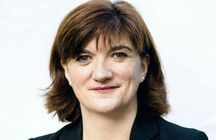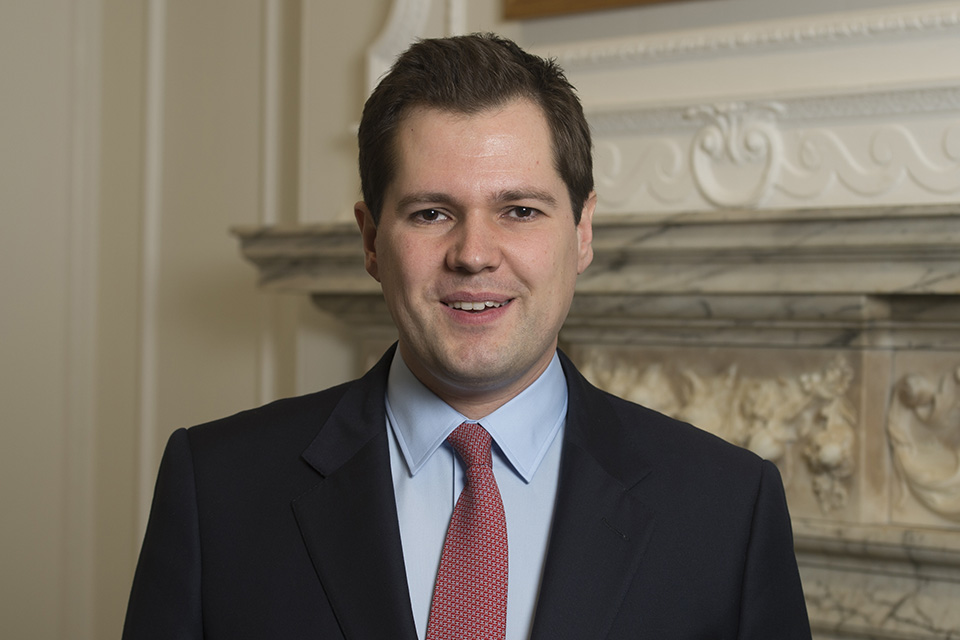Nicky Morgan – 2016 Speech at Holocaust Education Trust Lecture
Below is the text of the speech made by Nicky Morgan, the Secretary of State for Education, on 12 January 2016.
What a pleasure it is to be here with the Holocaust Educational Trust again.
I had the pleasure, too, of speaking at HET’s summer reception last year and my colleague Sajid Javid, the Business Secretary, spoke at HET’s annual dinner in the autumn.
British politicians – on all sides – take the work of HET very seriously because we believe that what happened during the Holocaust must never be forgotten.
I was thrilled to see that 10 Holocaust survivors were recognised in this year’s New Year’s Honours list and that 3 of them, Agnes, Renee and Susan, are here with us this evening.
Let me also say how honoured we all are to have Eva Clarke here.
I won’t say too much about her story because you will hear more about it during the conversation coming up but let me pay a brief tribute to her.
Eva was born at the gates of a concentration camp in 1945 in the final days of World War 2.
Her mother, Anka, suffered not just at one concentration camp but several.
Eva was truly a miracle baby, and she is a survivor who is keeping the memories of what happened during the Holocaust alive by going into schools – on a totally voluntary basis – and educating the next generation.
To Eva and to all the survivors among us tonight – you are truly inspirational. Thank you for sharing your stories over and over again to ensure that future generations never forget what you – and millions of others endured.
I am pleased that the Department for Education funds HET’s Lessons from Auschwitz project, which has sent more than 28,000 students to visit the site of the Auschwitz-Birkenau concentration camp.
I visited Auschwitz in 2012 with a group of young people from a school in my constituency.
Talk to anyone who has been and they will all tell you the same thing: once you have visited Auschwitz it never leaves you.
I can’t stress enough just how important it is that every generation of young people not only knows what happened at Auschwitz – and other concentration camps – but also understands the horror of what happened so that their generation can be steadfast in preventing it ever happening again.
This is particularly pressing as the torch passes from survivors to the next generation to tell the story of the Holocaust.
Those young people who visit Auschwitz become ambassadors for the Holocaust Education Trust.
By taking the time to discuss it not only with their peers but also their wider communities they are at the front line of the battle against intolerance.
I know that some of HET’s ambassadors are here tonight so please join me in thanking them for their work and giving them a round of applause.
There is no room for complacency on Holocaust education and HET have rightly highlighted their concerns.
These have focussed on gaps in knowledge, specialist teaching and how teaching about the Holocaust is prioritised.
For our part, we recognise the vital importance of maintaining Holocaust education as a key part of the key stage 3 curriculum and we will continue to do all we can to promote, support and fund teaching of the Holocaust.
As many of you will already know, Holocaust Memorial Day will be marked on 27 January – the day of Auschwitz’s liberation.
Its theme this year is ‘Don’t stand by’, and we are prompted to remember those people who refused to stand by and watch as the horror of the Holocaust unfolded around them.
People like Jane Haining, a Scottish missionary in a Jewish orphanage in Hungary who refused to evacuate but chose instead to stay with the children.
Jane was later killed in a gas chamber.
People like Frank Foley, Head of the British Passport Control Office in Berlin who used his position to forge passports and grant visas for those who would have found themselves inside concentration camps. Frank saved many thousands of lives.
To the Members of the House of Commons and House of Lords here tonight please be aware that HET are placing a ‘book of commitment’ in each House – as they do every year – and I would encourage every member to sign it; to publicly affirm their commitment to remembering the Holocaust as well as take part in debates taking place in both Houses in the lead up to Holocaust Memorial Day itself.
I’d also like to pay tribute to the work of the UK Holocaust Memorial Foundation and everything they are doing to take forward the recommendations of the Prime Minister’s Holocaust Commission to build a proper national memorial to the Holocaust and to record the testimony of British Holocaust survivors and camp liberators before it is too late.
I know the Prime Minister will have more to say on this later this month.
As a nation it is vitally important that we remember the Holocaust, to remember those who suffered as well as those who refused to stand by as the suffering occurred.
As a nation Britain is not prone to inaction but that doesn’t mean we don’t have a responsibility to keep what happened fresh in our minds.
We must remember collectively so that not a single one of us can ever forget.
The Holocaust didn’t begin in the gas chambers. It began in the minds of a hateful, ignorant, dangerous few.
That’s why my department has been so active in leading the fight against extremism in education and attempts to radicalise young people.
Now more than ever we feel the threat of those who want to put poison in the minds and hatred in the hearts of our children and we must help them develop the resilience to resist their propaganda.
Learning about the Holocaust helps to do just that – not just informing young people’s history but helping them to understand the dangers of prejudice, bigotry and intolerance and in doing so making them more tolerant, more confident and more resilient as citizens too.
Let’s make sure that in Britain we continue to educate everyone about the Holocaust so that the evil it represents can never be allowed to flourish again.
Thank you.


